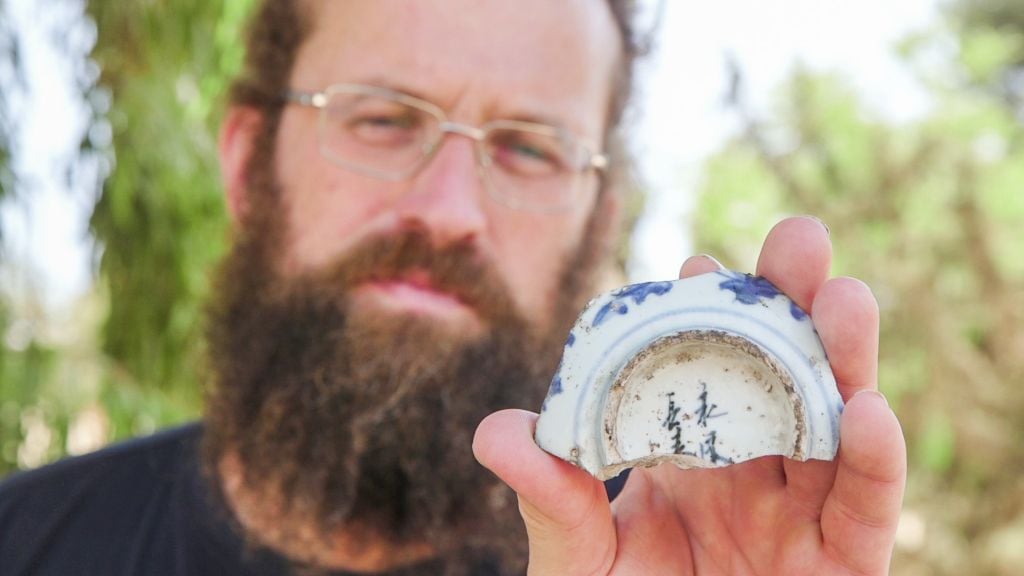The bowl, dating back to 1520–1570, hails from the Ming Dynasty, a period known for its exquisite porcelain production and expansive trade networks, the Antiquities Authority said.
By Pesach Benson, TPS
In an unusual archaeological find, a porcelain bowl fragment bearing a 16th-century Chinese inscription has been uncovered on Mount Zion in Jerusalem, the first known Chinese inscription ever found in Israel, the Israel Antiquities Authority announced on Tuesday.
While Chinese porcelain from ancient times has been found in Israel before, this is the first piece to bear an inscription. Inscribed were the words, “Forever we will guard the eternal spring.”
The discovery was made during a joint excavation by the Israel Antiquities Authority and the German Protestant Institute of Archaeology. Most artifacts unearthed in the Mount Zion digs date back to the Byzantine and Second Temple periods, over 1,500 years ago.
However, this latest find, linked to the Ming Dynasty, offers a glimpse into a later era of global interaction.
The fragment came to light last summer during routine preparations for the upcoming excavation season. Michael Chernin, an archaeologist with the Antiquities Authority, noticed a colorful shard protruding from the dirt.
Upon cleaning it, he discovered an inscription on its base. The text was identified as Chinese by Dr. Anna de Vincenz, a pottery specialist, and later deciphered by Jingchao Chen of the Hebrew University in Jerusalem.
The bowl, dating back to 1520–1570, hails from the Ming Dynasty, a period known for its exquisite porcelain production and expansive trade networks, the Antiquities Authority said.
The 16th century was a time of flourishing trade between the Chinese and Ottoman Empires. Ming Dynasty annals document approximately 20 Ottoman delegations visiting Beijing between the 15th and 17th centuries, facilitating cultural and commercial exchanges.
Chinese scholar Ma Li, writing in 1541, described colonies of Chinese merchants in coastal cities like Beirut and Tripoli. His accounts also reference major inland hubs such as Jerusalem, Cairo, and Aleppo, highlighting the interconnected nature of trade routes in the region.
“In archaeological research, evidence of trade relations between the Land of Israel and the Far East is known from earlier periods, particularly in the form of spices. However, encountering an actual Chinese inscription on Mount Zion is both rare and thrilling,” said Antiquities Authority director Eli Escusido.
Do You Love Israel? Make a Donation - Show Your Support!
Donate to vital charities that help protect Israeli citizens and inspire millions around the world to support Israel too!
Now more than ever, Israel needs your help to fight and win the war -- including on the battlefield of public opinion.
Antisemitism, anti-Israel bias and boycotts are out of control. Israel's enemies are inciting terror and violence against innocent Israelis and Jews around the world. Help us fight back!

